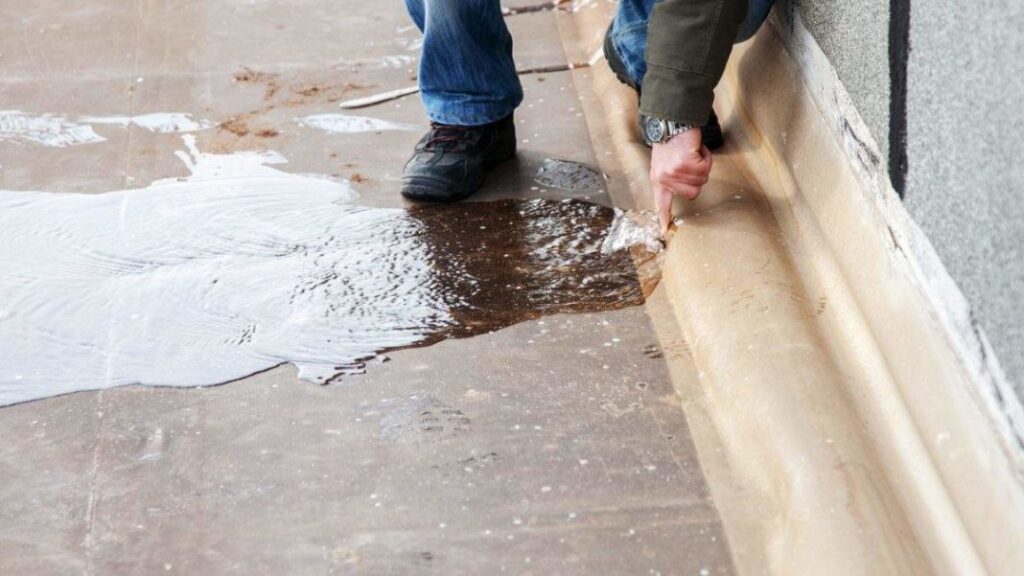How To Repair Slab Leaks In Denver?
Slab leaks can be a homeowner’s nightmare. These hidden water leaks occur beneath the concrete foundation of your home, making them difficult to detect and repair. If left unaddressed, they can lead to costly damage to your property. However, there are effective ways to repair slab leaks and prevent further damage. In this article, we’ll explore three common methods to repair slab leaks and provide answers to frequently asked questions about this issue.
-
Pipe Rerouting
One of the most common methods to repair slab leaks is pipe rerouting. This involves bypassing the damaged section of the pipe by creating a new path for the water supply. Here’s how it works: Before any repairs can be made, it’s crucial to locate the exact source of the slab leak. Professional plumbers often use advanced tools like electronic leak detection equipment and thermal imaging to pinpoint the leak’s location accurately.
Once the leak’s location is determined, the plumber will create access points in the concrete slab. This may involve cutting into the foundation, so it’s essential to hire experienced professionals who can minimize damage. After accessing the pipes, the damaged section is isolated and bypassed by installing new pipes above ground. This not only stops the leak but also prevents future leaks from occurring in the same area.
The access points in the concrete are then repaired, leaving your foundation intact. While this method may involve some disruption to your home, it is an effective way to address slab leaks without extensive excavation.
-
Pipe Relining
Another option for repairing slab leaks is pipe relining. This method is less invasive than pipe rerouting and involves creating a new inner lining for the existing pipe. Here’s how it works: A professional plumber will inspect the damaged pipe using specialized cameras to assess the extent of the damage and confirm that relining is a suitable solution. The damaged pipe is cleaned to remove debris, scale, and corrosion. This ensures that the new lining will adhere properly. A flexible epoxy resin lining is inserted into the damaged pipe and inflated. Once the epoxy cures, it forms a strong, seamless inner lining, effectively sealing off the leak. The repaired pipe is tested to ensure that it’s functioning correctly, and water flow is restored.
Pipe relining is a cost-effective and minimally invasive solution for slab leaks, as it doesn’t require extensive excavation or disruption to your property.
-
Tunneling
In cases where rerouting and relining are not feasible, tunneling may be the best option for repairing slab leaks. Tunneling involves creating tunnels beneath your home’s foundation to access and repair the damaged pipe. Here’s how it works: A trench or tunnel is dug beneath the foundation to access the damaged pipe. This can be a labor-intensive process, but it allows for precise repairs. The damaged section of the pipe is removed and replaced with new piping. This ensures a durable and long-lasting repair. Once the repairs are complete, the trench or tunnel is backfilled, and your foundation is restored.
While tunneling can be more disruptive and costly than other methods, it may be necessary in cases where the damage is extensive or the pipes are difficult to access.
FAQs
How Can I Tell If I Have A Slab Leak?
Slab leaks can be challenging to detect, but common signs include unexplained increases in your water bill, wet or warm spots on your floors, low water pressure, or the sound of running water when no fixtures are in use. If you suspect a slab leak, it’s essential to have it inspected by a professional plumber.
Are Slab Leaks Covered By Homeowners’ Insurance?
Whether or not your homeowners’ insurance covers slab leaks depends on your policy and the cause of the leak. In many cases, insurance will cover the cost of repairing the damage to your property but may not cover the cost of repairing the plumbing itself. It’s advisable to review your policy and consult with your insurance provider for specific details.
Can I Repair A Slab Leak Myself?
Slab leaks are complex and typically require professional expertise and specialized equipment to locate and repair accurately. Attempting to repair a slab leak yourself can lead to further damage and higher repair costs. It’s best to hire a licensed plumber with experience in slab leak detection and repair.
Conclusion
Slab leaks can pose significant challenges for homeowners, but they can be effectively repaired through methods like pipe rerouting, pipe relining, or tunneling. The choice of repair method depends on the extent of the damage and the accessibility of the pipes. If you suspect a slab leak in your home, it’s crucial to address it promptly to prevent further damage and costly repairs. Consult with a professional plumber to determine the best solution for your specific situation, and remember that timely action can save you both money and stress in the long run.
For more information related to plumbing services, contact Drain Pros Plumbing Denver at (720) 664-8988.

